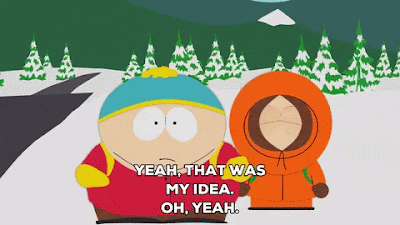Google Buzz Privacy blah blah blah
2010-08-08 Update: Perhaps online privacy is important after all?
The recent Google Buzz fallout has me confused.
Why does everyone get so bent out of shape about public privacy?
Don't get me wrong -- I'm a big advocate of personal privacy. People should be able to do whatever they want in their homes, behind closed doors without being harassed -- as long as it's legal, of course :)
Your online activities, however, are by default not really that private. Maybe people just don't understand this.
Even if you're using a brower's "privacy mode", anonymous proxies, etc., you're still leaving a digital trail behind you.
Clearly things like credit card numbers, social security numbers, health information, etc. need to be protected, and that's what strong encryption and privacy laws are for.
Likewise, it should be illegal for unauthorized snooping -- key loggers, spyware, etc. are like phone wiretaps and should be treated similarly.
But I don't think status updates, or drunken club photos that you willingly upload should fall under the same legislation.
Before you send an email or post something on Facebook, stop and consider for a moment that you're creating an essentially permanent digital record of that content.
It you upload content you later regret, it's not Facebook's fault, nor Google's, nor that of any other online provider.
It's your own fault for putting it out there to begin with.
Even if Google published your entire Contact List for the world to see, would that really be horrible privacy breach?
I'm sure a lot of people would view it that way, but I don't know if Google really has (or should have) any legal obligation to keep that type of information private.
Clearly this is a subject that will require much debate, but I think at least some of the responsibility for keeping things private should rest on the end user.
Perhaps Google just needs to continue with some of the modifications they've made so far -- making it more obvious to people what they're sharing, and warning them (maybe with bold, highlighted, flashing text) of the possible implications.
The recent Google Buzz fallout has me confused.
Why does everyone get so bent out of shape about public privacy?
Don't get me wrong -- I'm a big advocate of personal privacy. People should be able to do whatever they want in their homes, behind closed doors without being harassed -- as long as it's legal, of course :)
Your online activities, however, are by default not really that private. Maybe people just don't understand this.
Even if you're using a brower's "privacy mode", anonymous proxies, etc., you're still leaving a digital trail behind you.
Clearly things like credit card numbers, social security numbers, health information, etc. need to be protected, and that's what strong encryption and privacy laws are for.
Likewise, it should be illegal for unauthorized snooping -- key loggers, spyware, etc. are like phone wiretaps and should be treated similarly.
But I don't think status updates, or drunken club photos that you willingly upload should fall under the same legislation.
Before you send an email or post something on Facebook, stop and consider for a moment that you're creating an essentially permanent digital record of that content.
It you upload content you later regret, it's not Facebook's fault, nor Google's, nor that of any other online provider.
It's your own fault for putting it out there to begin with.
Even if Google published your entire Contact List for the world to see, would that really be horrible privacy breach?
I'm sure a lot of people would view it that way, but I don't know if Google really has (or should have) any legal obligation to keep that type of information private.
Clearly this is a subject that will require much debate, but I think at least some of the responsibility for keeping things private should rest on the end user.
Perhaps Google just needs to continue with some of the modifications they've made so far -- making it more obvious to people what they're sharing, and warning them (maybe with bold, highlighted, flashing text) of the possible implications.





Privacy may be one thing, but you need to consider what Google's doing with that information - as well as how Google is connecting the dots.
ReplyDeleteExample 1: Google can connect your surfing habits across all the sites that you visit if you have google toolbar installed. Which means they can connect your shopping habits at amazon with your searches for books with the blogs you read. Individually maybe not a big deal. Collectively, a big issue.
Secondly Google doesn't mind making money off of people's private affairs - or at least what people would by default assume is private. Google's streetview shows a recognizable picture of my wife out front of my office. And their view of my house shows my ATV's in my wide open garage door. You drop by and snap a pic, that's one thing. Google takes a pic of every street in the country and publishes it online without recourse, with the intention of making money from it, that's another thing entirely - and is a breach of privacy.
I agree that Google has a staggering collection of personal information that could very easily be used for nefarious purposes. But so far they've shown to be better than most other organizations in keeping it that way -- refusing to hand it over to the government, and not getting hacked.
ReplyDeleteAs far as Street View is concerned, however, I feel that anything visible from a public street is public. Besides that, they have a service where you can flag things for "fuzzing" if you have a problem with them.